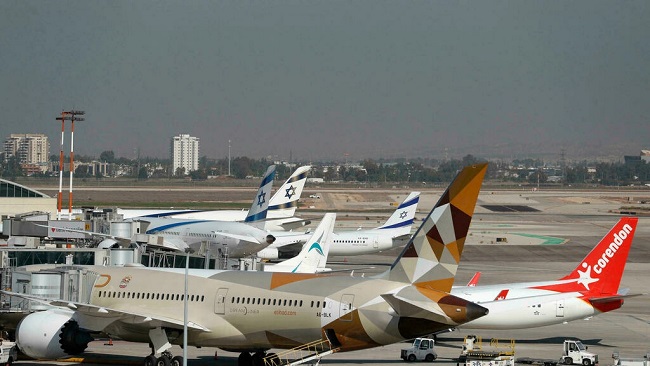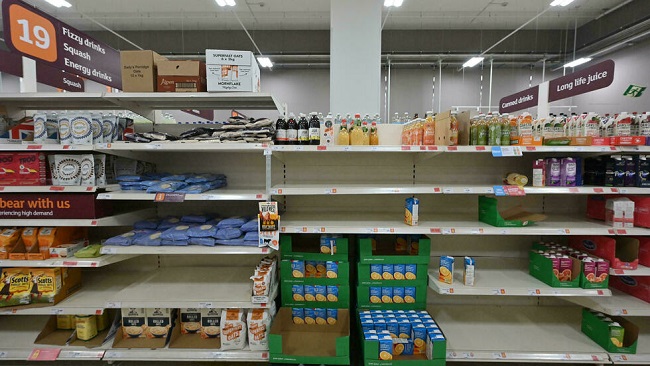5, March 2022
UAE placed on money-laundering grey list, promises ‘robust’ response 0
The United Arab Emirates has promised “robust actions” against money-laundering and terrorist financing after the Middle East financial hub was placed on a grey list of countries subject to heightened scrutiny.
The wealthy Gulf state, which includes the freewheeling trade-to-tourism hub Dubai, was named on the Paris-based Financial Action Task Force’s 23-strong list on Friday, joining the likes of Yemen, Syria and South Sudan.
Grey-list countries are “actively working with the FATF to address strategic deficiencies in their regimes to counter money laundering, terrorist financing, and proliferation financing”, the global watchdog said in a statement.
UAE officials said they would strive to meet a list of requirements laid down by the taskforce, including increasing prosecutions and identifying sanctions evasion.
“The UAE takes its role in protecting the integrity of the global financial system extremely seriously,” the UAE’s Executive Office of Anti-Money Laundering and Countering the Financing of Terrorism said in a statement.
“The UAE will continue its ongoing efforts to identify, disrupt and punish criminals and illicit financial networks,” it added, pledging “robust actions and ongoing measures… to secure the stability and integrity of the country’s financial system”.
The resources-rich UAE has become a nexus connecting the Middle East, Europe, Central Asia and Asia. Dubai has the world’s busiest airport in terms of international passenger traffic, and one of the busiest sea ports.
While the desert country has successfully diversified its economy rather than relying on oil, experts and international organisations have long criticised a failure to crack down on murky financial transactions.
Source: AFP





























16, September 2022
India’s Adani briefly listed as world’s second-richest person 0
Indian industrialist Gautam Adani briefly became the world’s second-richest person on the Forbes real-time billionaire tracker on Friday, weeks after becoming the first Asian to break into the top three.
The self-made billionaire’s net worth surged $4 billion overnight to $154 billion, according to Forbes, ranking him ahead of LVMH’s Bernard Arnault and Amazon’s Jeff Bezos.
Tesla founder Elon Musk remained well out in front with a fortune of more than $270 billion.
Arnault — who at times held the top spot in May 2021 — and Adani traded the number two position during the day as the share prices of their companies fluctuated.
Adani, 60, made his fortune in ports and commodities trading and now operates India’s second-largest conglomerate with interests ranging from coal mining and edible oils to airports and news media.
His ballooning net worth reflects a stratospheric rise in the market capitalisation of his publicly listed companies, as investors back the Adani Group’s aggressive expansion of old and new businesses.
Shares in the flagship Adani Enterprises — of which the billionaire owns 75 percent — have soared more than 2,700 percent since March 2020, and doubled in value in the past six months.
Stock price surges in other group companies including Adani Transmission, Adani Power, Adani Ports and Adani Green Energy catapulted Adani past fellow Indian billionaire Mukesh Ambani this year.
Analyst estimates indicated the market capitalisation of Adani’s seven listed companies also briefly overtook those of the Tata group on Friday morning, making the Adani Group India’s largest conglomerate.
Born in the city of Ahmedabad in the western state of Gujarat to a middle-class family, Adani dropped out of college to work in the diamond industry before starting his export business in 1988.
In 1995, he won a contract to build and operate a commercial shipping port at Mundra in Gujarat, which has since grown to become India’s largest port.
At the same time, Adani expanded into thermal power generation and coal mining in India and overseas.
In recent years, the conglomerate has forayed into petrochemicals, cement, data centres and copper refining, in addition to establishing a renewable energy business with ambitious targets.
Recent investments in Indian news media and a bid for 5G airwaves this year have raised speculation that the billionaire’s empire could soon impinge on sectors dominated by Ambani’s Reliance Industries.
But Adani’s rapid expansion into capital-intensive businesses has also raised financial alarms, with Fitch Group’s CreditSights last week reiterating that they “remain concerned over the Adani Group’s leverage”.
Source: AFP